Best Foods for Muscle Growth – Build Strength with Protein-Rich Diet
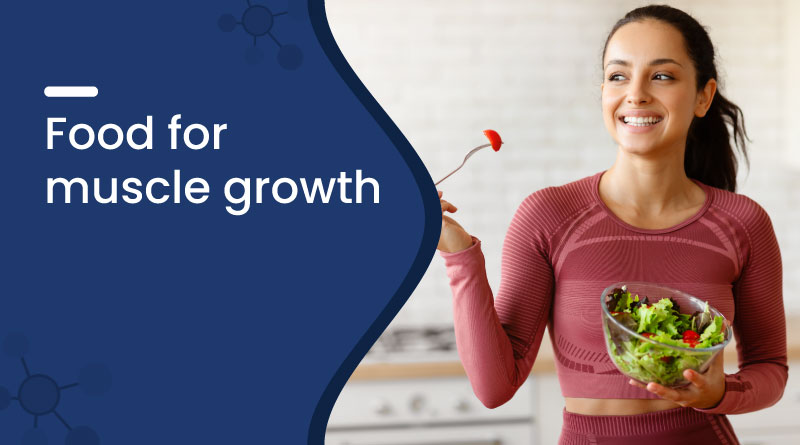

Muscle building isn’t just about lifting weights; it also depends on what you eat. The right combination of protein, carbs, and healthy fats fuels recovery and promotes muscle growth. In this blog, we’ll explore the best foods that help in muscle growth and can support your fitness goals naturally.
Why Is Nutrition Important for Muscle Growth?
Muscle growth is initiated when muscle fibers are damaged during resistance exercise and then rebuilt stronger during recovery. Repair involves amino acids (from protein), energy (from carbohydrates), and assistance from micronutrients such as magnesium and zinc. Without adequate nutrition, even extremely hard workouts lead to fatigue instead of increased strength.
Foods That Help in Muscle Growth
Foods that play a very effective role in the growth of muscles are high in protein, carbohydrates, and healthy fats. They support muscle repair, boost strength, and improve workout recovery.
1. Protein-Rich Foods
Protein is muscle-building material and plays a key role in repairing and building muscle. It supplies amino acids, particularly leucine, which promotes the activation of muscle protein synthesis. The top sources of protein include:
- Eggs
- Chicken breast
- Greek yogurt
- Lentils and chickpeas
- Tofu and paneer
- Fish (like salmon and tuna)
2. Carbohydrate-Rich Foods
Carbs replenish glycogen, the muscles' primary energy source during exercise. Adding complex carbohydrates provides sustained energy and improved recovery. The top sources of carbohydrates include:
- Brown rice
- Oats
- Sweet potatoes
- Whole wheat roti or bread
- Bananas
3. Healthy Fats
Fats play a vital role in hormone production, including testosterone, a key hormone in muscle building. The top healthy fat sources are:
- Nuts and seeds
- Avocados
- Peanut butter
- Desi ghee (in moderation)
4. Fruits and Vegetables
Fruits and vegetables may not be high in protein, but they’re packed with antioxidants, vitamins, and minerals that reduce inflammation, aid recovery, and support overall muscle function.
- Berries (blueberries, strawberries) – Rich in antioxidants that reduce exercise-induced muscle damage.
- Oranges – Loaded with vitamin C, which supports tissue repair and collagen production.
- Bananas – Provide quick-digesting carbs and potassium, which help prevent muscle cramps.
- Spinach – High in magnesium and iron, important for muscle contraction and oxygen supply.
- Beetroot – Increases the level of nitric oxide, blood flow, and endurance.
Also Read - Supplements That Strengthen Muscles: What Really Works?
Micronutrients That Support Muscle Growth
While macronutrients get the spotlight, vitamins and minerals are just as crucial for muscle function and recovery.
Key Micronutrients:
- Vitamin D – Helps maintain muscle strength; sourced from sunlight and fortified foods.
- Magnesium – Very important for the contraction of muscles (leafy greens and whole grains).
- Zinc – Helps in repairing tissues (seeds, nuts, and legumes).
- Calcium – Supports muscle contraction and bone strength (dairy and leafy greens).
Hydration and Muscle Performance
Water isn’t technically food, but it’s vital. Without enough hydration, you may experience muscle cramps and a drop in strength. Drink 8–10 glasses per day, or more if you are profusely sweating during exercise. Lemon water with a dash of salt or coconut water can also replace lost electrolytes.
Foods That Hinder Muscle Growth
Some foods can work against your muscle-building goals instead of helping them. Highly processed items or those with added sugars can hinder your progress. Try to limit:
- Sugary snacks & soft drinks: Cause energy crashes and promote fat gain.
- Excess alcohol: Lowers testosterone and slows recovery.
- Fried and oily foods: May trigger inflammation and interfere with how your body absorbs nutrients.
- Highly processed foods: Low in nutrients, high in preservatives and empty calories.
- Excess salt: Can lead to water retention and muscle cramps.
Conclusion
Muscle building is a combination of consistent strength training, proper sleep, and a well-balanced diet. Eating whole, nutrient-dense foods ensures your muscles get what they need to grow stronger. Remember, there’s no magic food — it’s about creating the right mix that works for your body.
Frequently Asked Questions (FAQs)
Q. What should I add to my diet for muscle growth?
A. For muscle growth, you should start eating more protein and carbohydrate-rich foods along with healthy fats and essential nutrients.
Q. Do supplements help in muscle growth?
A. Whey protein helps, but whole foods should be the first choice for natural nutrition.
Q. Can I build muscles without eating non-vegetarian food items?
A. A vegetarian diet with protein-rich foods like paneer, lentils, tofu, and nuts can effectively support muscle growth.
Q. How much water should I drink while building muscle?
A. Make an aim to drink 8 to 10 glasses of water every day. Staying hydrated supports muscle function and recovery.
Protein Hydrolysate 10% (16.67 gm) + Dibasic Calcium Phosphate (750 mg) + Phosphorous (580 mg) + Pyridoxine Hydrochloride (1.67 mg) + Cyanocobalamin (3.33 mcg) + Vitamin D3 (333.33 IU) + Niacinamide (50 mg) + Calcium Pantothenate (16.67 mg) + Folic Acid (1 mg) + Zinc Sulphate Monohydrate Eq. to Elemental Zinc (1.67 mg) + Ferric Ammonium Citrate Eq. to Elemental Iron (25 mg) + Manganese Sulphate (5 mg) + Magnesium Oxide (13.33 mg) + Anhydrous Copper Sulphate (8.33 mg) + Chromium Chloride Eq. to Elemental Chromium (83.33 mcg) + Selenium Dioxide Monohydrate Eq. to Elemental Selenium (66.67 mcg) + Potassium Chloride (16.67 mg) + Sodium Chloride (110 mg) + Potassium Iodide Eq. to Elemental Iodine (333.33 mcg) + Excipients (q.s.)
200gm powder in jar
Protein Hydrolysate 10% (16.67 gm) + Dibasic Calcium Phosphate (750 mg) + Phosphorous (580 mg) + Pyridoxine Hydrochloride (1.67 mg) + Cyanocobalamin (3.33 mcg) + Vitamin D3 (333.33 IU) + Niacinamide (50 mg) + Calcium Pantothenate (16.67 mg) + Folic Acid (1 mg) + Zinc Sulphate Monohydrate (1.67 mg) + Ferric Ammonium Citrate (25 mg) + Manganese Sulphate (5 mg) + Magnesium Oxide (13.33 mg) + Anhydrous Copper Sulphate (8.33 mg) + Chromium Chloride (83.33 mcg) + Selenium Dioxide Monohydrate (66.67 mcg) + Potassium Chloride (16.67 mg) + Sodium Chloride (110 mg) + Potassium Iodide (333.33 mcg) + Excipients (q.s.)
200gm powder in jar
Whey Protein (5 gm) + Vitamin B2 (0.1 mg) + Vitamin B12 (0.13 mg) + Folate (8 mg) + Iron (2.9 mg) + Phosphorus (30 mg) + Magnesium (20 mg) + Manganese (0.1 mg) + Arginine (50 mg) + Ashwagandha (50 mg) + Mushroom (50 mg) + Taurine (25 mg) + Flax Seeds (30 mg) + Proanthocyanidin (75 mg) + Ginger Powder (20 mg) + Green Tea Powder (30 mg) + Olive Extract (30 mg) + Raspberry Fruit Powder (30 mg) + Grape Seed Extract (30 mg) + Giloy Extract (30 mg) + Walnut Extract (30 mg) + Pumpkin Seeds (30 mg) + Cashew (30 mg) + Chia Seeds (30 mg)
300gm Powder in 1 jar
Protein Hydrolysate (16.67 gm) + Dibasic Calcium Phosphate (750 mg) + Phosphorous (580 mg) + Pyridoxine Hydrochloride (1.67 mg) + Cyanocobalamin (3.33 mcg) + Vitamin D3 (333.33 IU) + Niacinamide (50 mg) + Calcium Pantothenate (16.67 mg) + Folic Acid (1 mg) + Zinc Sulphate Monohydrate (1.67 mg) + Ferric Ammonium Citrate (25 mg) + Manganese Sulphate (5 mcg) + Magnesium Oxide (13.33 mg) + Anhydrous Copper Sulphate (8.33 mg) + Chromic Chloride (83.33 mcg) + Selenium Dioxide Monohydrate (66.67 mcg) + Potassium Chloride (16.67 mg) + Sodium Chloride (110 mg) + Potassium Iodide (333.33 mcg) + Excipients (q.s.)
200gm Powder in Jar
Ginseng Extract (42.5 mg) + Vitamin A (2500 IU) + Vitamin B1 (1 mg) + Vitamin B2 (1.5 mg) + Vitamin B3 (10 mg) + Vitamin B5 (5 mg) + Vitamin B6 (1 mg) + Vitamin B12 (0.001 mg) + Vitamin C (50 mg) + Vitamin D3 (200 IU) + Vitamin E (5 mg) + Folic Acid (0.15 mg) + L-Arginine (25 mg) + Calcium (75 mg) + Phosphorus (58 mg) + Ferrous Fumarate (30 mg) + Zinc (10 mg) + Magnesium (3 mg) + Potassium (2 mg) + Manganese (0.5 mg) + Copper (0.5 mg) + Iodine (0.1 mg) + Carbohydrate (100 mg) + Protein (20 mg) + Fat (380 mg) + Energy (4.23 kcal)
15 Capsules in 1 strip
Protein Hydrolysate (16.67 gm) + Dibasic Calcium Phosphate (750 mg) + Phosphorous (580 mg) + Pyridoxine Hydrochloride (1.67 mg) + Cyanocobalamin (3.33 mcg) + Vitamin D3 (333.33 IU) + Niacinamide (50 mg) + Calcium Pantothenate (16.67 mg) + Folic Acid (1 mg) + Zinc Sulphate Monohydrate (1.67 mg) + Ferric Ammonium Citrate (25 mg) + Manganese Sulphate (5 mcg) + Magnesium Oxide (13.33 mg) + Anhydrous Copper Sulphate (8.33 mg) + Chromium Chloride (83.33 mcg) + Selenium Dioxide Monohydrate (66.67 mcg) + Potassium Chloride (16.67 mg) + Sodium Chloride (110 mg) + Potassium Iodide (333.33 mcg) + Excipients (q.s.)
500gm in 1 jar
Protein Hydrolysate (16.67 gm) + Dibasic Calcium Phosphate (750 mg) + Phosphorous (580 mg) + Pyridoxine Hydrochloride (1.67 mg) + Cyanocobalamin (3.33 mcg) + Vitamin D3 (333.33 IU) + Niacinamide (50 mg) + Calcium Pantothenate (16.67 mg) + Folic Acid (1 mg) + Zinc Sulphate Monohydrate (1.67 mg) + Ferric Ammonium Citrate (25 mg) + Manganese Sulphate (5 mcg) + Magnesium Oxide (13.33 mg) + Anhydrous Copper Sulphate (8.33 mg) + Chromium Chloride (83.33 mcg) + Selenium Dioxide Monohydrate (66.67 mcg) + Potassium Chloride (16.67 mg) + Sodium Chloride (110 mg) + Potassium Iodide (333.33 mcg) + Excipients (q.s.)
500gm in 1 jar
Recent Blogs
Disclaimer : Zeelab Pharmacy provides health information for knowledge only. Do not self-medicate. Always consult a qualified doctor before starting, stopping, or changing any medicine or treatment.

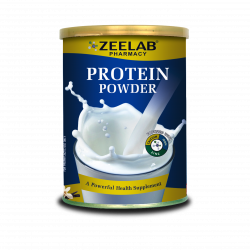
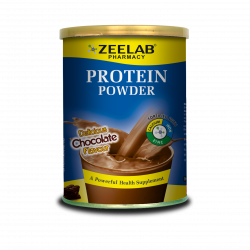
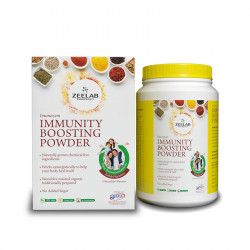
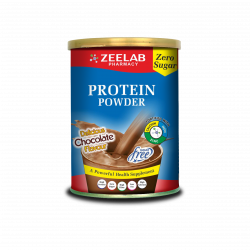
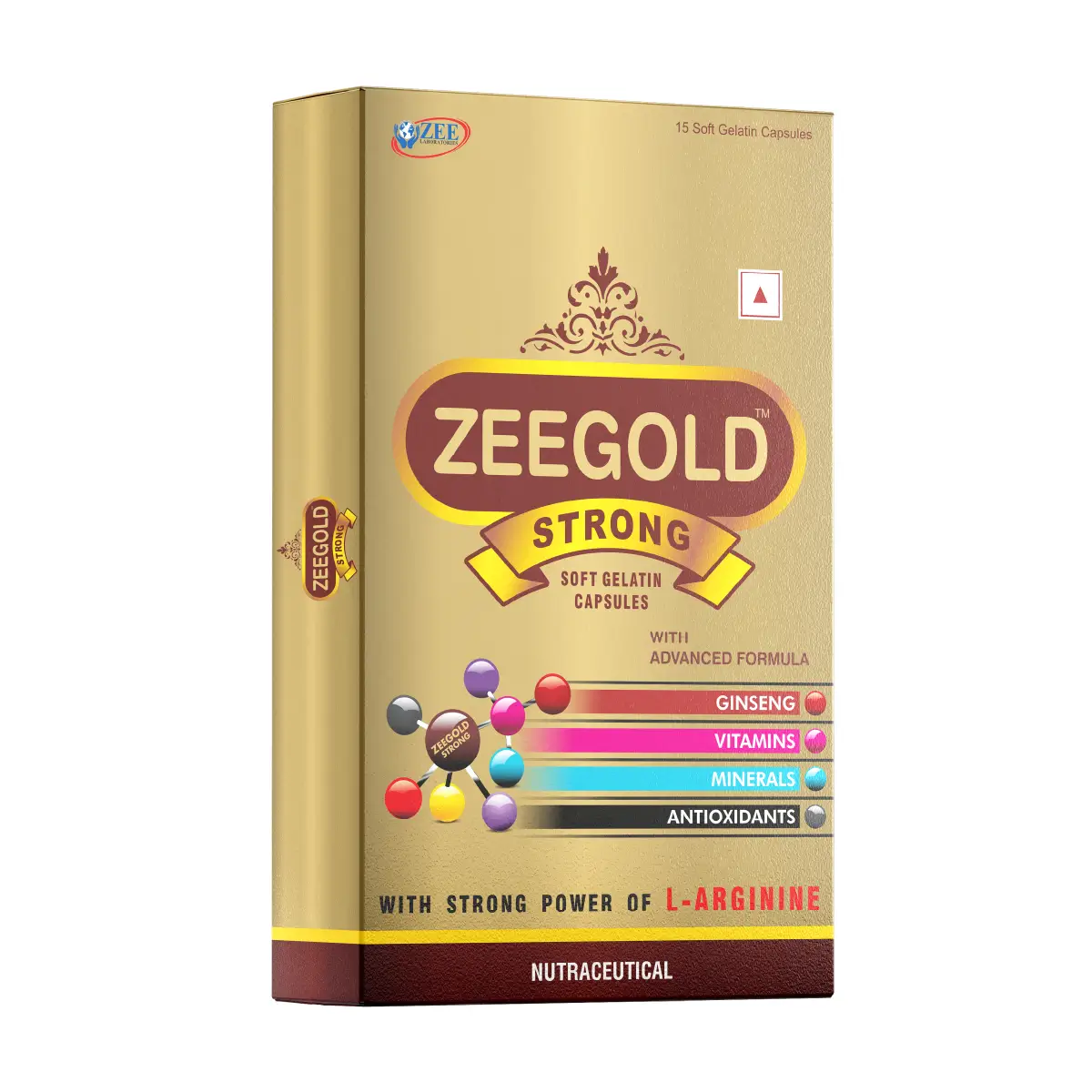
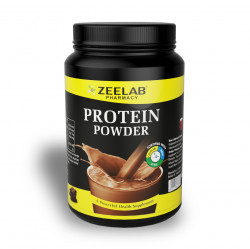
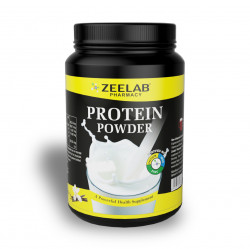





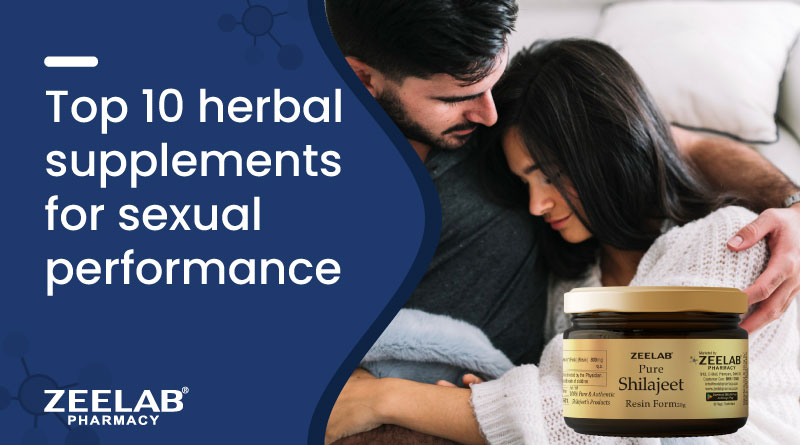









 Added!
Added!